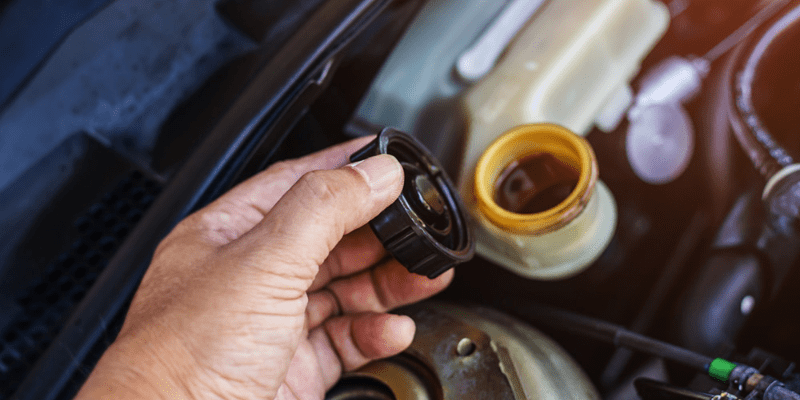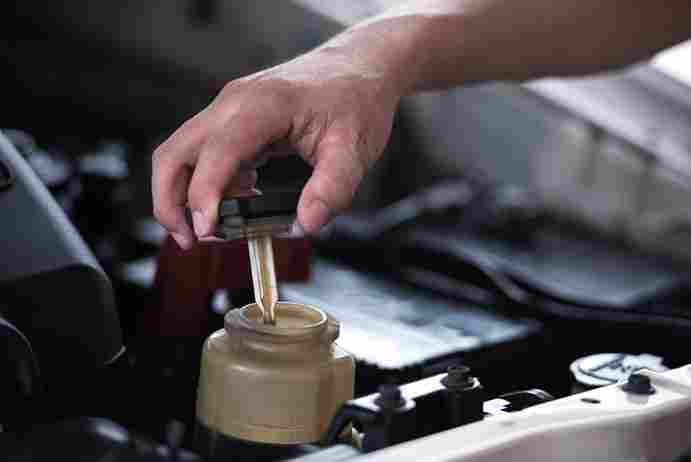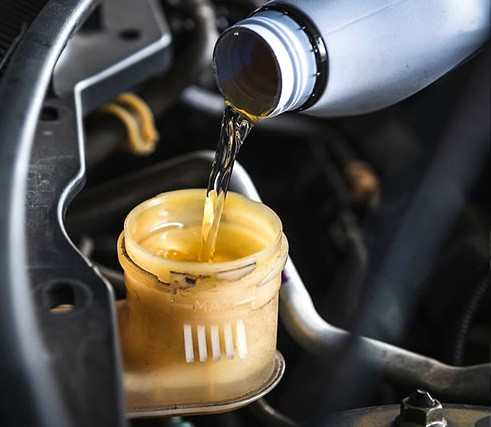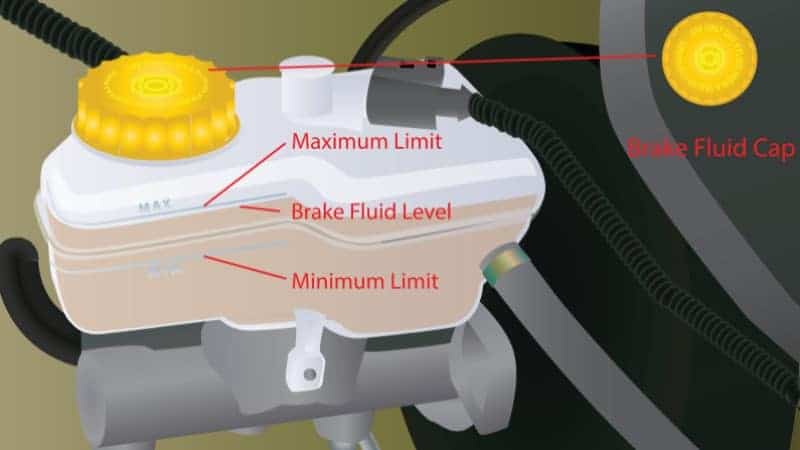Brake fluid is an essential part of the vehicle’s braking system. It is important to change your car brake oil in time. It is a medium that transfers the force from the brake pedal to the brake calipers to halt the vehicle. Like other vital fluids in a car, brake fluid requires regular inspection and replacement to ensure optimal performance and safety.
Old or contaminated brake fluid can reduce the braking efficiency of the car which can lead to an accident. Moreover, neglecting this vital maintenance task can lead to costly repairs down the line.
This article aims to guide you through the importance of change, the potential risks of overlooking this task, and the recommended intervals for maintaining your car’s brake fluid health. So when should you change your car’s brake oil? Check out this article to find out!
Perform BRAKE OIL checks Regularly
You can check the brake oil on your own and Know when you would have to change it. And it’s very easy to check the fluid yourself.
For checking the brake oil you can open the brake fluid reservoir It’s usually under the hood, attached to the top of the master cylinder. Your brake oil should be neat or may have a slightly orange, green, blue, or tint.
If the oil looks dark or gives a black shade, you should bring the vehicle for service. Or if you’re not sure about the color of the brake fluid, you can go to your area local workshop.
Where the experts can perform a full brake oil check, including a check for moisture and copper content. We recommend that you should do this test at least once per year, or even more often if you live in a high-humidity area.
How Frequently Change Your Car Brake Oil?
When it comes to your car, you want to do anything you can to keep it running smoothly. One of the things you can do is change your brake oil every 3,000 miles.
This will help keep your car’s engine running smoothly and prevent any potential problems down the road.
How to change your brake fluid
There are a few reasons why you might need to change your brake fluid, but the most common reason is when the fluid becomes contaminated.
Over time, brake dust and other debris can build up in the fluid, leading to reduced braking performance and even brake failure. Other signs that it’s time to change your brake fluid include a strong smell or taste, or if the fluid appears milky or cloudy.
Drain the old brake fluid
If your car has an oil-cooled brake system, you’ll need to drain the old fluid first. This is because the new fluid will contain anti-freeze, which will prevent the brakes from working properly. Also, be sure to replace the brake pads and brake shoes at the same time you change the oil.
Add the new brake fluid
When should you change your car’s brake fluid? Every 6 months is the general rule, but check your owner’s manual to see if there are any specific guidelines. Brake fluid is a consumable and needs to be replaced regularly to keep your brakes working properly.
Flush the calipers/wheel cylinders
It depends on a few things like your vehicle make and model, how often you use your car, and how much abuse your break takes. However, generally speaking, you should change your car brake oil every 3,000 miles or every six months, whichever comes first.
Check Fluid Level
Keep checking the level of brake fluid in the master cylinder and keep it topped up.
Conclusion
If you’ve been keeping an eye on your car’s brake oil level, it may be time to change it sooner rather than later. Break oil is a type of lubricant that helps your car move more freely and smoothly when you hit the brakes. As the grease becomes depleted, your breaking will become less effective and eventually require more effort to stop.
This can cause wear and tear on your brake system, so it’s important to replace the brake oil every 3000 miles or as needed. If you have any questions about when to change your brake oil, don’t hesitate to reach out to us.
Faq
Why is brake oil important for a car?
Brake oil, or brake fluid, serves as the medium to transmit hydraulic force when you press the brake pedal, enabling the car to stop. It ensures consistent and efficient brake performance.
How often should you change the car brake oil?
Most manufacturers recommend changing brake fluid every 20,000 to 30,000 miles, but it’s essential to consult your vehicle’s manual or a mechanic for specific recommendations.
What happens if the brake oil isn’t changed?
Old or contaminated brake fluid can lead to decreased brake performance, increased stopping distances, and in extreme cases, brake failure.
Are there signs that indicate your car brake fluid needs changing?
Signs include a spongy brake pedal, discolored fluid, or the warning light indicating low brake fluid.
Can old brake oil damage other components?
Contaminated brake fluid can corrode brake system components, leading to costly repairs.
How does brake fluid get contaminated?
Brake fluid is hygroscopic, meaning it absorbs moisture over time. This moisture can lead to rust, reduced boiling points, and compromised performance.
What are the disadvantages of old brake oil?
Old brake oil can lead to reduced brake responsiveness, potential brake failure, corrosion of brake parts, and increased wear on brake components.
Can you check the condition of the brake fluid at home?
You can visually inspect the brake fluid. If it appears dark or cloudy, it might be time for a change. However, for an accurate assessment, it’s best to consult with a professional.
Is there a specific type of brake fluid you should use when changing?
Brake fluids come in different types like DOT 3, DOT 4, and DOT 5. It’s essential to use the type specified in your vehicle’s manual.
Does driving style impact how often brake fluid should be changed?
Aggressive driving or frequent driving in mountainous regions can cause the brake fluid to heat up more often, which might necessitate more frequent changes.



